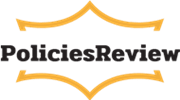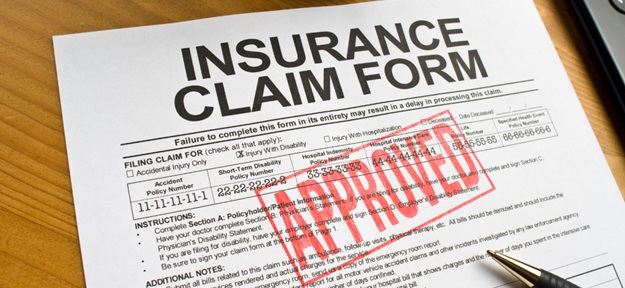Businesses need general liability insurance to avoid claims losses. Companies can prevent and ensure adequate coverage by understanding common claims like slip and fall property damage product liability advertising injury and personal injury.
Slip And Fall Accidents
One of the most common general liability claims for businesses is slip and fall. These accidents can occur in retail stores, office buildings, restaurants and factories. When customers, visitors or employees slip, trip or fall on a property they can suffer minor bruises, severe fractures or head injuries.
Wet floors, uneven surfaces, poor lighting, loose mats and walkway obstacles can cause slip and fall accidents. These cases require proof that the property owner was negligent in maintaining safety. This requires showing that the owner knew or should have known about the hazardous condition and failed to fix it.
Commercial properties must be inspected regularly and hazards must be addressed immediately. This includes posting warnings about wet floors leveling surfaces, lighting and clearing walkways. Employee training on safety procedures can also prevent slip and fall accidents. These precautions reduce accident risk and show a commitment to safety which can help defend liability claims.
Slip and fall claims can result from medical bills, legal fees and settlements or judgments. Therefore businesses need comprehensive general liability insurance to protect against these risks. Regular risk assessments and safety audits can identify areas for improvement and keep the premises safe.
Property Damage
Businesses also face property damage claims under general liability insurance. Business operations that damage property lead to these claims. Contractors accidentally breaking customers’ windows, delivery drivers colliding with other vehicles and business equipment causing fires that spread to neighboring properties are examples of property damage.
Establishing liability proving the business actions or negligence caused the damage is crucial to these claims. Accidents during construction or maintenance of faulty equipment or natural disasters with inadequate safety measures can cause property damage.
Businesses should enforce safety protocols and train employees to reduce property damage claims. Protecting property from accidents requires regular equipment and facility maintenance. Clear procedures for handling accidents and emergencies can also reduce their impact.
Businesses must promptly respond to property damage claims and cooperate with insurance adjusters and lawyers. Photographs, witness statements and maintenance records can help defend against these claims. Businesses should regularly review their general liability insurance policies to ensure they have enough coverage for property damage claims including legal fees and settlements.
Product Liability
Product manufacturers, distributors and sellers worry about product liability claims. Injuries, illnesses and property damage from defective products lead to these claims. Product liability can result from manufacturing defects, design flaws or inadequate warnings and instructions.
Product liability claims can result from a toy with small parts that can choke a drug with unlisted side effects or an electrical appliance that overheats and catches fire. Businesses must ensure their products are safe and defect free. This requires strict quality control, regular testing and industry standards and regulations.
In a product liability claim the business must show it took reasonable steps to ensure product safety. This can include keeping detailed quality control testing and compliance certification records. A robust system for tracking and addressing customer complaints and product recalls is also essential for risk management. Businesses should promptly notify customers and recall defective products.
Product liability claims can damage businesses financially and reputationally. Companies may be fined, sued and lose their brand image while compensating customers. Protecting these risks requires comprehensive general liability insurance with product liability coverage. Legal defense settlements and judgments for product liability claims should be covered.
Advertising Injury
Advertising injury claims stem from a company marketing and advertising. They may include defamation, libel , slander , copyright infringement and false advertising. A business may be sued for making false claims about a competitor’s products using copyrighted images without permission or harming another reputation.
Advertising injury claims often involve subjective judgments about how advertising affects consumers and competitors making them difficult to defend. Businesses should follow strict advertising and marketing guidelines to reduce advertising injury claims.
This includes legal reviews of all advertising materials to ensure compliance with copyright trademark and advertising standards. Businesses should also avoid criticizing competitors and make truthful claims about their products and services. Businesses must promptly respond to advertising injury claims and cooperate with lawyers and insurance adjusters.
Drafts approvals and distribution records of advertising materials can help defend against these claims. General liability insurance usually covers advertising injury claims which can help businesses handle financial and legal costs. Regular marketing and advertising team training on legal compliance and ethical advertising can reduce advertising injury claims.
Personal Injury
Personal injury claims under general liability insurance cover business negligence related non physical harm. Such claims may involve false arrest, wrongful eviction, privacy invasion or emotional distress. A hotel m ay be sued for personal injury if security wrongfully detains a guest or a landlord may be sued for wrongful eviction.
ay be sued for personal injury if security wrongfully detains a guest or a landlord may be sued for wrongful eviction.
Due to their complexity and high damages, personal injury claims can have severe legal and financial consequences for businesses. To reduce personal injury claims companies should have clear policies and procedures for handling potential claims.
This includes training staff on proper conduct keeping accurate customer and tenant interaction records and complying with all laws and regulations. Businesses must act quickly and cooperate with lawyers and insurance adjusters in personal injury claims.
Witness statements, security footage and other records can help defend against these claims. General liability insurance covers personal injury claims assisting businesses to manage financial and legal costs. Regular risk assessments and legal reviews of policies and procedures can reduce personal injury claims.
Legal Costs And Coverage
Defending general liability claims can be expensive including attorney fees, court costs and settlements. Businesses must understand policy limits and exclusions to ensure liability claim legal expenses are covered. General liability insurance covers legal defense costs up to policy limits emphasizing the importance of choosing business specific insurance.
To address changing risks and liabilities businesses should regularly review and update their insurance coverage. Complex cases with multiple claimants or extensive damages can quickly escalate legal costs. Protecting these financial risks requires adequate general liability insurance. Legal fees settlements and judgments for liability claims are covered.
Businesses should work with insurers to set coverage limits based on their operations and risk profile. Businesses should also execute risk management systems to reduce liability claims and legal costs. Regular risk assessments, detailed records and preventive measures to address potential hazards are required.
Businesses should promptly cooperate with legal representatives and insurance adjusters in liability claims. Documentation and evidence are essential for claim defense and legal cost management. Regular employee training on safety legal compliance and risk management can reduce liability claims and legal costs.
Conclusion
Businesses must understand joint general liability claims to avoid financial losses and lawsuits. Slip and fall property damage, product liability advertising injury and personal injury claims are common general liability insurance issues. Businesses can reduce liability claims by taking precautions keeping premises safe and following laws. Adequate insurance coverage tailored to business operations protects long term financial stability and reputation against unexpected liabilities and legal expenses.

